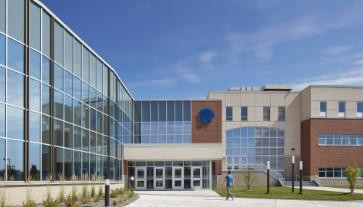Empowering Education: Unlocking Opportunities through School Leasing
Introduction:
In recent years, a transformative trend has emerged in the realm of education – the concept of leasing schools. Traditionally, schools have been regarded as permanent fixtures in communities, providing a stable foundation for learning. However, changing demographics, financial constraints, and evolving educational models have paved the way for a novel approach: leasing school facilities. This article delves into the advantages, challenges, and potential impact of running a school for lease.
The Rise of School Leasing:
The idea of leasing educational spaces has gained momentum as educational institutions, both public and private, grapple with the need for flexibility. Leasing schools allows for a dynamic response to changing enrollment patterns, shifting demographics, and fluctuating budgetary constraints. By leasing a school, educational stakeholders can adapt quickly to evolving needs without the long-term commitments associated with constructing new facilities.
Advantages of Leasing Schools:
Financial Flexibility: Leasing provides schools with a cost-effective solution, enabling them to allocate resources more efficiently. Schools can avoid the hefty upfront costs of construction and maintenance, redirecting funds toward educational programs, teacher salaries, and technology.
Adaptability to Changing Demographics: In areas experiencing population growth or decline, leasing allows schools to adjust their footprint accordingly. Schools can expand or contract without the complexities of selling or purchasing property.
Community Collaboration: Leasing school spaces fosters partnerships with local businesses and organizations. By repurposing vacant buildings or collaborating with community centers, schools can contribute to neighborhood revitalization efforts.
Environmental Sustainability: Utilizing existing structures through leasing aligns with sustainable practices. Repurposing buildings reduces the environmental impact associated with new construction and minimizes the ecological footprint of educational institutions.
Challenges to Consider:
Lease Negotiations: Negotiating favorable lease terms is crucial. Schools must navigate complex agreements to ensure that the terms align with their long-term goals and financial capabilities.
Community Perception: Introducing the concept of leasing schools may initially face resistance from communities accustomed to traditional educational models. Effective communication and transparency are key to addressing concerns and garnering support.
Property Maintenance: While landlords typically handle property maintenance, running school for sale in noida ensure that leased facilities meet safety and educational standards. A proactive approach to facility management is essential to creating a conducive learning environment.
Long-Term Viability: Schools considering leasing should carefully assess the long-term viability of the arrangement. A thorough analysis of enrollment trends, budget projections, and community dynamics is necessary to ensure the sustainability of the lease.
Conclusion:
Leasing schools represents a dynamic shift in the educational landscape, offering institutions a flexible and cost-effective approach to adapting to the ever-changing needs of students and communities. As schools embrace this model, they must navigate challenges and engage in transparent communication with stakeholders to build trust and ensure a successful transition. Ultimately, leasing schools has the potential to unlock new opportunities for educational institutions, fostering adaptability, sustainability, and community collaboration in the pursuit of quality education for all.
Source url:-https://sites.google.com/view/winworldrealtycom54/home

Comments
Post a Comment